‘This is the first event in history where a company CEO invites all of the guests to explain why he was wrong’: Jensen Huang changes his tune on quantum computing after January stock shock
Huang said quantum has "potential" weeks after negativity tanked stocks


Nvidia CEO Jensen Huang has stepped back from his prediction that practical quantum computing applications are decades away following comments that sent stocks spiraling in January.
At Nvidia GTC’s "Quantum Day" event, Huang took a conciliatory tone to the quantum industry, comparing quantum to the GPUs made by Nvidia, noting the latter took plenty of time to make an impact.
"This is the first event in history where a company CEO invites all of the guests to explain why he was wrong," Huang said, according to CNBC, while opening an event that had a dozen representatives from across the quantum industry.
"This whole session is going to be like a therapy session for me,” Huang added.
Huang further backtracked on his comments in January when he said real-world quantum applications were much further off than many industry stakeholders believed.
At the time, the Nvidia chief executive suggested the technology would only be good at solving specific, theoretical problems.
"Of course, quantum computing has the potential and all of our hopes that it will deliver extraordinary impact," Huang reportedly said. "But the technology is insanely complicated."
Get the ITPro daily newsletter
Sign up today and you will receive a free copy of our Future Focus 2025 report - the leading guidance on AI, cybersecurity and other IT challenges as per 700+ senior executives
Referencing the subsequent stock sell off, Huang admitted he didn't know so many quantum firms were already publicly traded.
"How could a quantum computer be public," he said.
Huang also asked the panel if ‘quantum computers’ was the wrong terminology, suggesting they should be referred to as scientific machines instead.
But D-Wave CEO Alan Baratz disputed that, saying his company's computers are already being applied for actual computing, beyond mere measurement.
"There are computational problems that are of the rage of classical computers," Bratz said, according to Investors Business Daily.
Quantum collaboration
Earlier this week, Nvidia announced it was building a research center to develop and provide technologies to help push forward quantum computing.
The Nvidia Accelerated Quantum Research Center (NVAQC) will bring together quantum hardware with existing AI supercomputing, what Nvidia is calling accelerated quantum supercomputing.
"The NVAQC will help solve quantum computing’s most challenging problems, ranging from qubit noise to transforming experimental quantum processors into practical devices,” the company said in a statement.
The NVAQC will be based in Boston in the US and expected to begin work next year. The center will work with industry and academia, offering access to Nvidia's GB200 NVL72 rack-scale systems, which the company claimed was the "most powerful hardware ever deployed for quantum computing applications".
RELATED WHITEPAPER
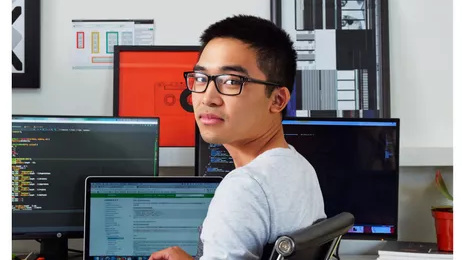
"Quantum computing will augment AI supercomputers to tackle some of the world’s most important problems, from drug discovery to materials development," Huang said in a statement.
"Working with the wider quantum research community to advance CUDA-quantum hybrid computing, the NVIDIA Accelerated Quantum Research Center is where breakthroughs will be made to create large-scale, useful, accelerated quantum supercomputers."
Jensen Huang's quantum error
Such an announcement strikes a different tone to what Huang was saying earlier this year. In January, Huang tanked quantum stocks by saying he didn't buy predictions that the technology would have a real commercial impact any time soon, adding that real-world applications were likely decades away.
“So if you kind of said 15 years for very useful quantum computers, that’d probably be on the early side. If you said 30 is probably on the late side. But if you picked 20, I think a whole bunch of us would believe it,” he said at the time.
Quantum Computing Inc shares slipped by 45%, Rigetti Computing by 46% and IonQ by 42% — the total cost of Huang's comments was $4bn in market capitalisation.
That sparked pushback from industry giants including Google, which a few weeks later said it believed commercial quantum computing could arrive within the next five years.
Shortly after that, Microsoft unveiled a quantum chip breakthrough called Majorana 1, saying it could hasten progress towards practical applications.
MORE FROM ITPRO
- Nvidia thinks it’s time to start measuring data center efficiency by other metrics
- Jensen Huang has taken Nvidia to the top – but he says the 'suffering' wasn't really worth it
- Satya Nadella hails Microsoft’s 'Majorana' quantum chip breakthrough
Freelance journalist Nicole Kobie first started writing for ITPro in 2007, with bylines in New Scientist, Wired, PC Pro and many more.
Nicole the author of a book about the history of technology, The Long History of the Future.
-
 Bigger salaries, more burnout: Is the CISO role in crisis?
Bigger salaries, more burnout: Is the CISO role in crisis?In-depth CISOs are more stressed than ever before – but why is this and what can be done?
By Kate O'Flaherty Published
-
 Cheap cyber crime kits can be bought on the dark web for less than $25
Cheap cyber crime kits can be bought on the dark web for less than $25News Research from NordVPN shows phishing kits are now widely available on the dark web and via messaging apps like Telegram, and are often selling for less than $25.
By Emma Woollacott Published
-
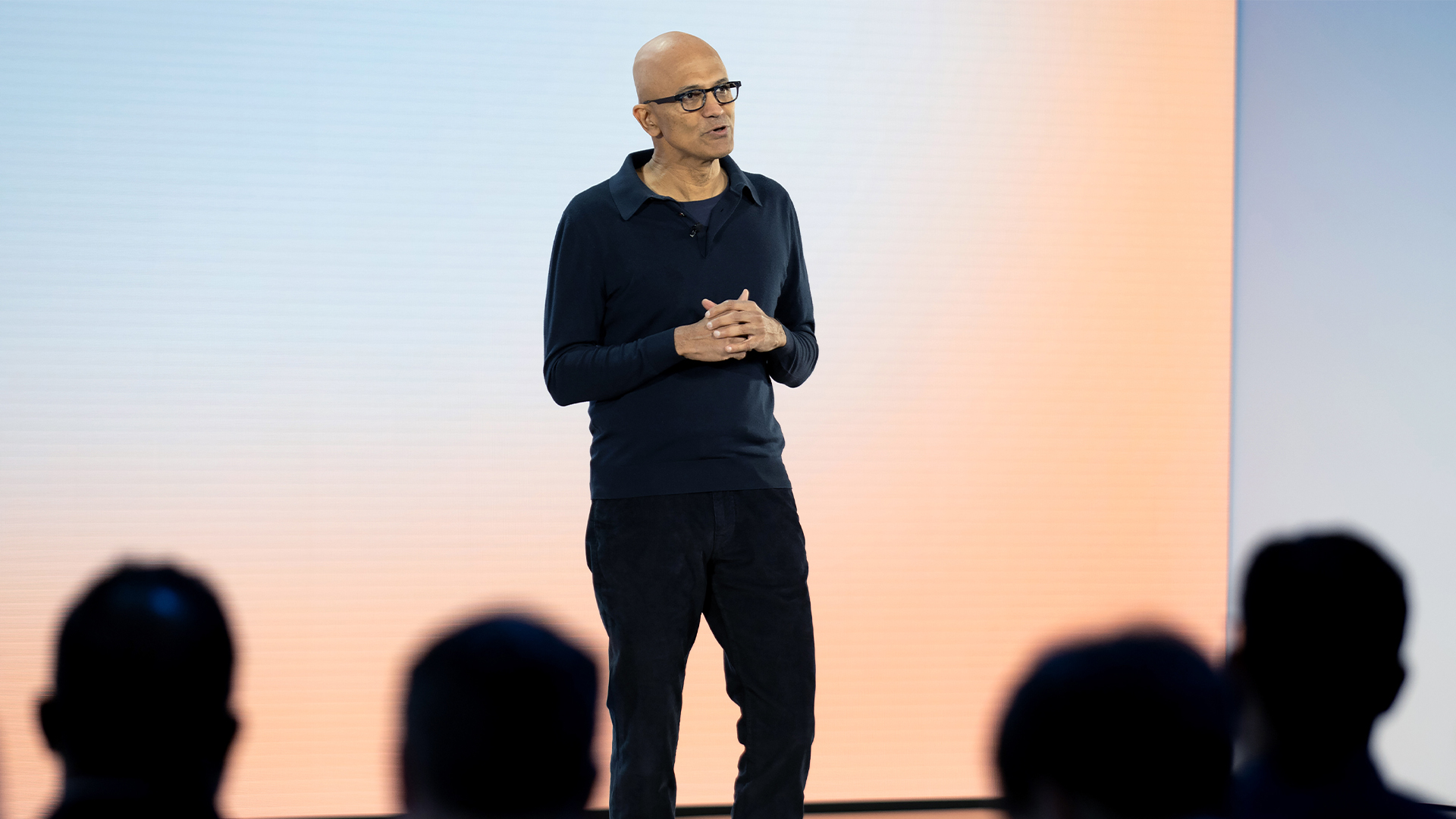 ‘We’ve created an entirely new state of matter’: Satya Nadella hails Microsoft’s 'Majorana' quantum chip breakthrough
‘We’ve created an entirely new state of matter’: Satya Nadella hails Microsoft’s 'Majorana' quantum chip breakthroughNews Microsoft has unveiled a new chip it says could deliver quantum computers with real-world applications in ‘years, not decades'.
By Emma Woollacott Published
-
 QuEra Computing just raised $230 million to pioneer “fault-tolerant” quantum computing – and it even got Google’s seal of approval
QuEra Computing just raised $230 million to pioneer “fault-tolerant” quantum computing – and it even got Google’s seal of approvalNews QuEra Computing has raised $230 million in funding to drive development of 'fault tolerant' quantum computers, receiving backing from Google and SoftBank.
By Ross Kelly Last updated
-
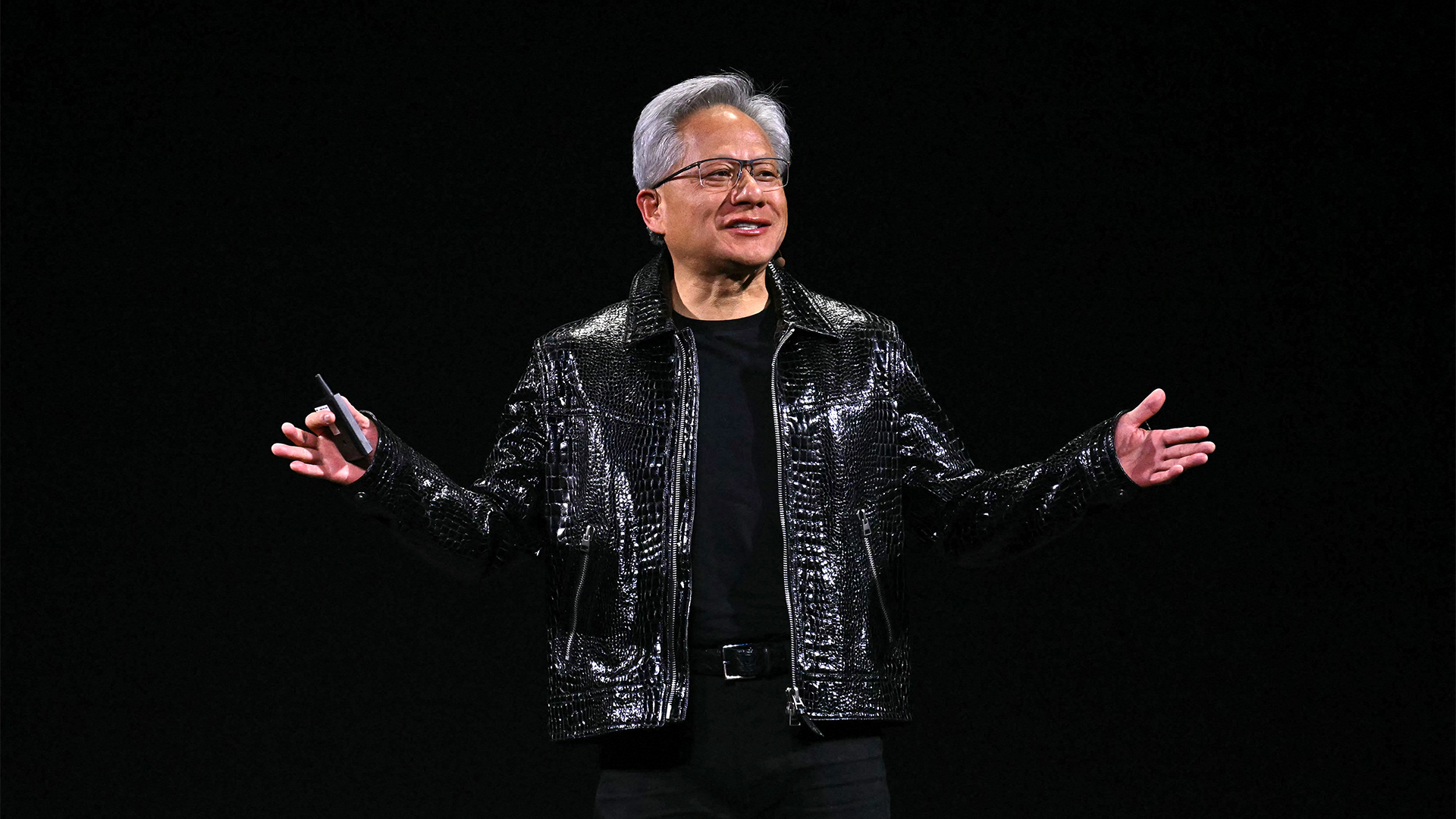 We’re optimistic that within five years we’ll see real-world applications’: Google thinks it’s on the cusp of delivering on its quantum computing dream – even if Jensen Huang isn't so sure
We’re optimistic that within five years we’ll see real-world applications’: Google thinks it’s on the cusp of delivering on its quantum computing dream – even if Jensen Huang isn't so sureNews Nvidia CEO Jensen Huang sent shares in quantum computing firms tumbling last month after making comments on the near-term viability of the technology.
By Ross Kelly Last updated
-
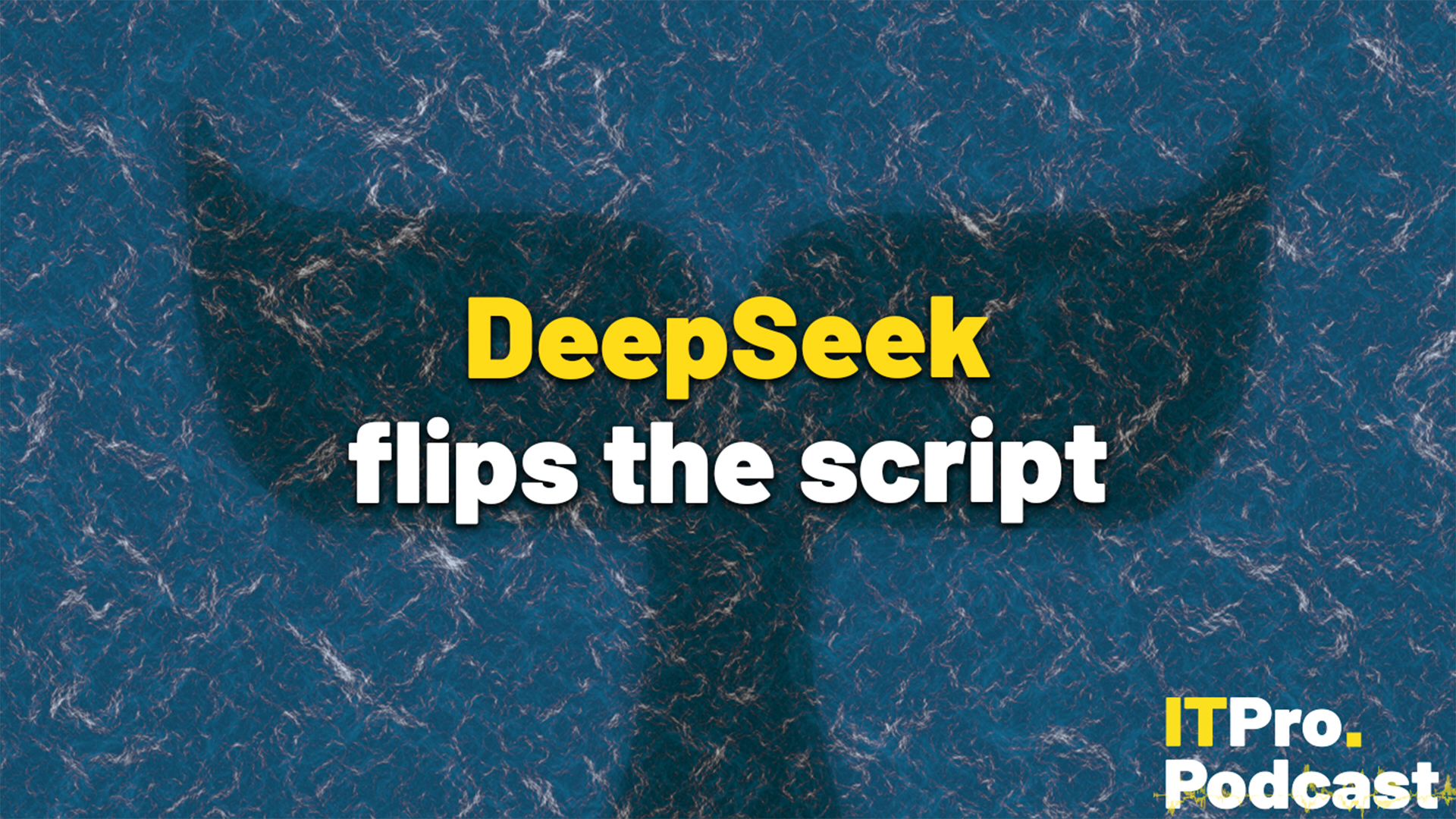 DeepSeek flips the script
DeepSeek flips the scriptITPro Podcast The Chinese startup's efficiency gains could undermine compute demands from the biggest names in tech
By Rory Bathgate Published
-
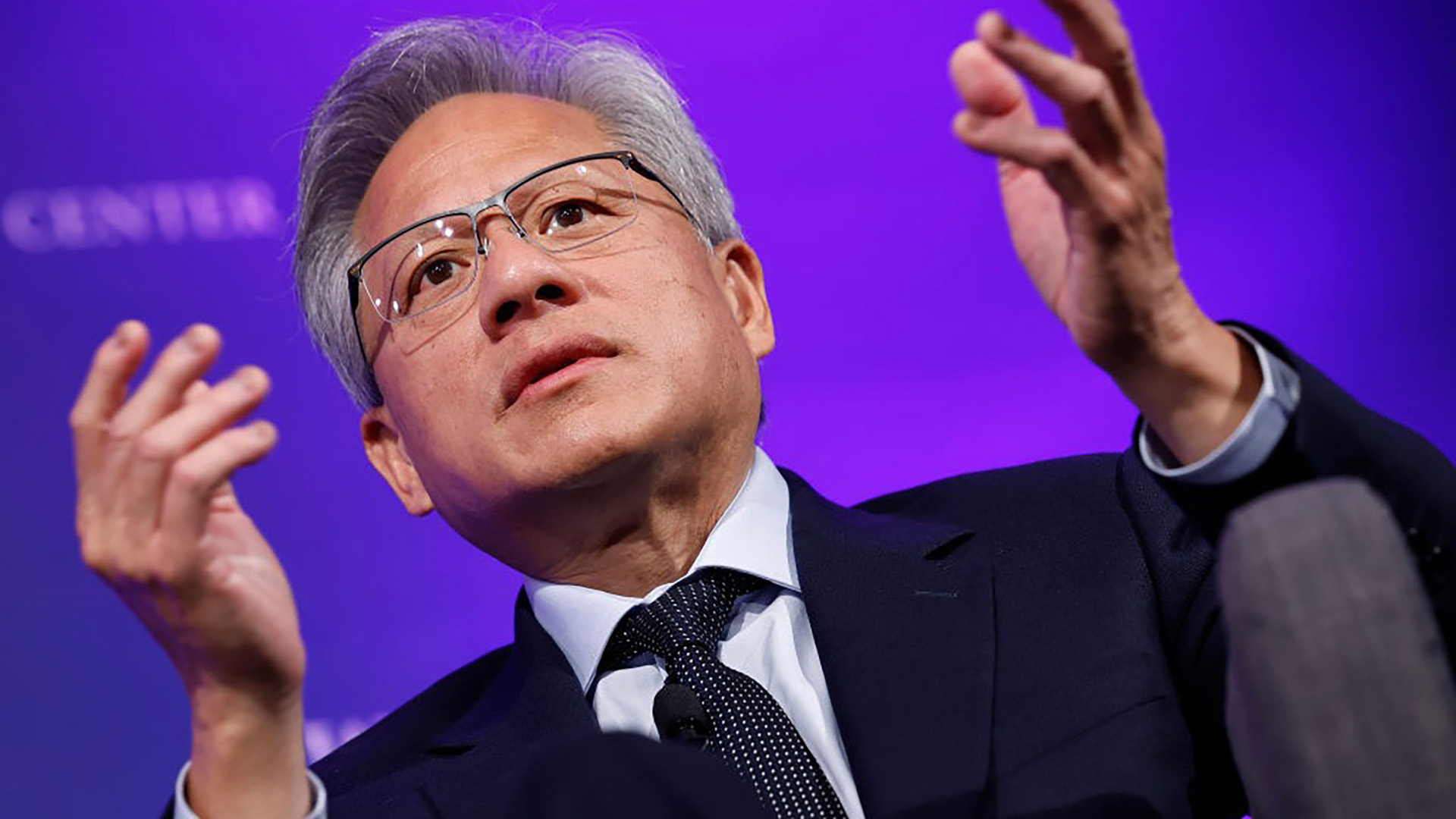 Jensen Huang doesn't think AI will come for his job — but other CEOs might disagree
Jensen Huang doesn't think AI will come for his job — but other CEOs might disagreeNews A survey last year found almost half of CEOs believe they could be replaced with AI, but Nvidia’s superstar CEO thinks otherwise
By Solomon Klappholz Published
-
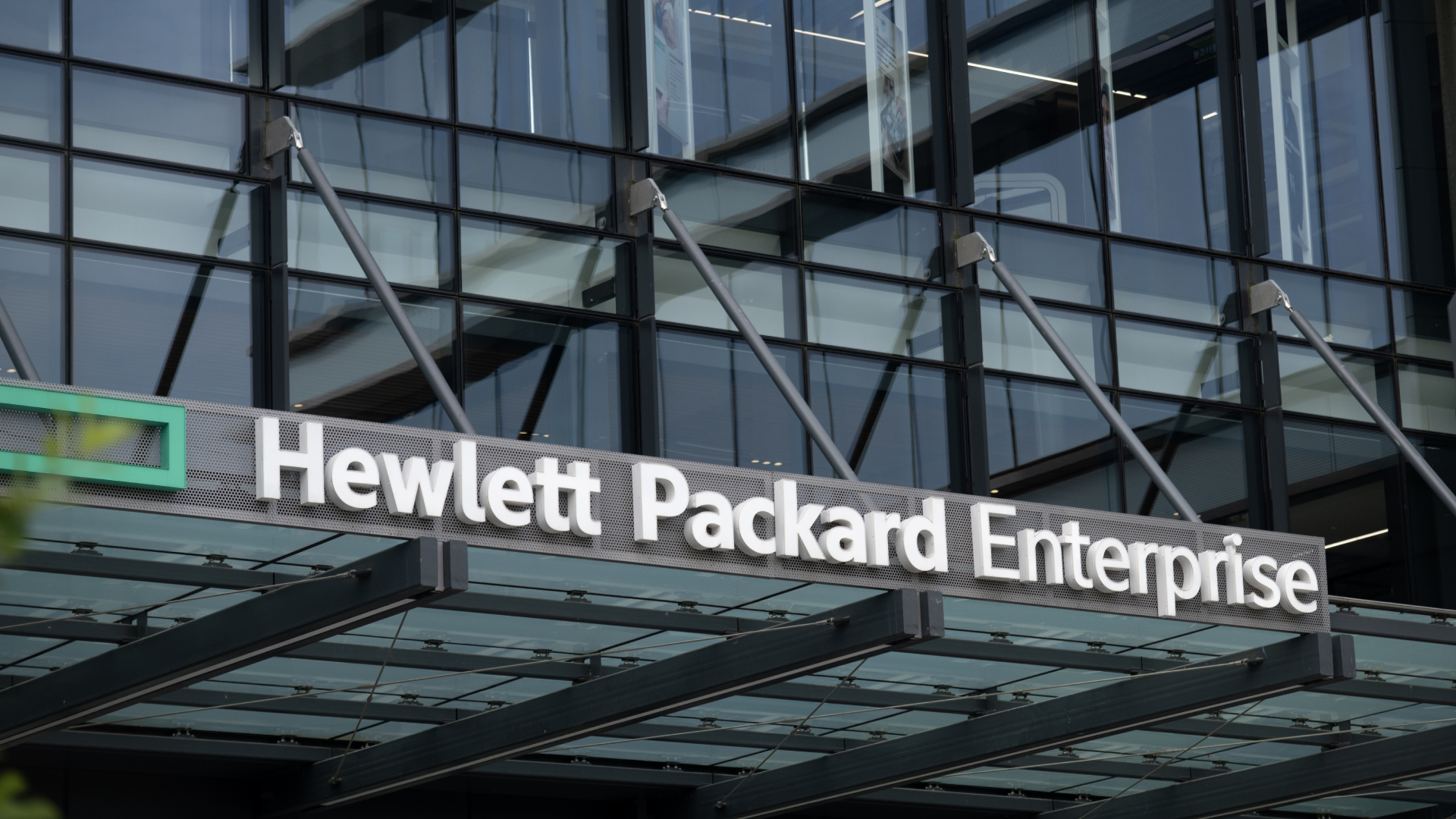 HPE’s ‘one-click AI solution’ for private cloud cuts project times from months to a ‘single moment’
HPE’s ‘one-click AI solution’ for private cloud cuts project times from months to a ‘single moment’News The new tools allow generative AI virtual assistants to be launched in seconds, using private data
By Emma Woollacott Last updated
-
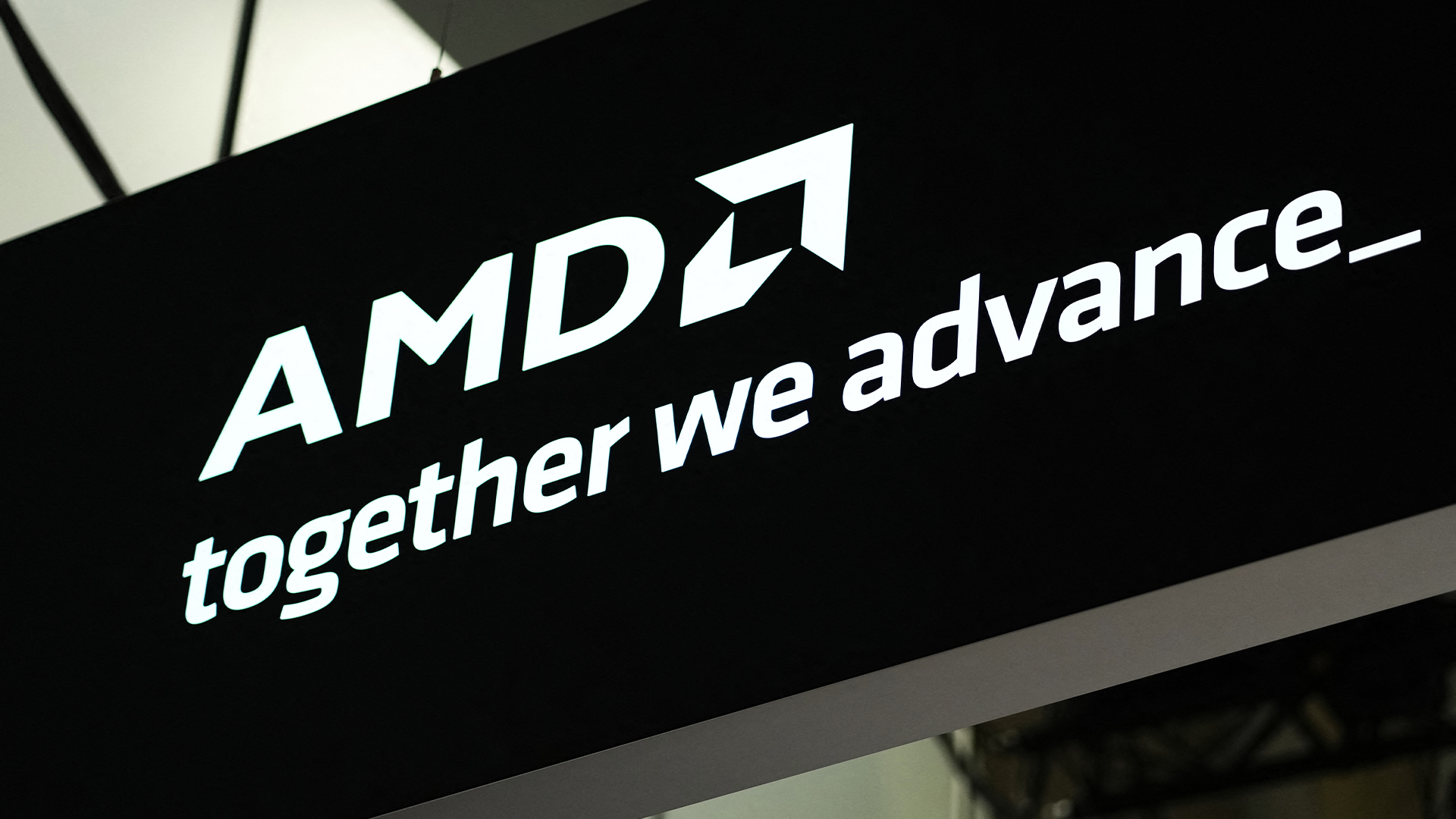 AMD’s acquisition spree continues with $665 million deal for Silo AI
AMD’s acquisition spree continues with $665 million deal for Silo AINews The deal will enable AMD to bolster its portfolio of end-to-end AI solutions and drive its ‘open standards’ approach to the technology
By Ross Kelly Published
-
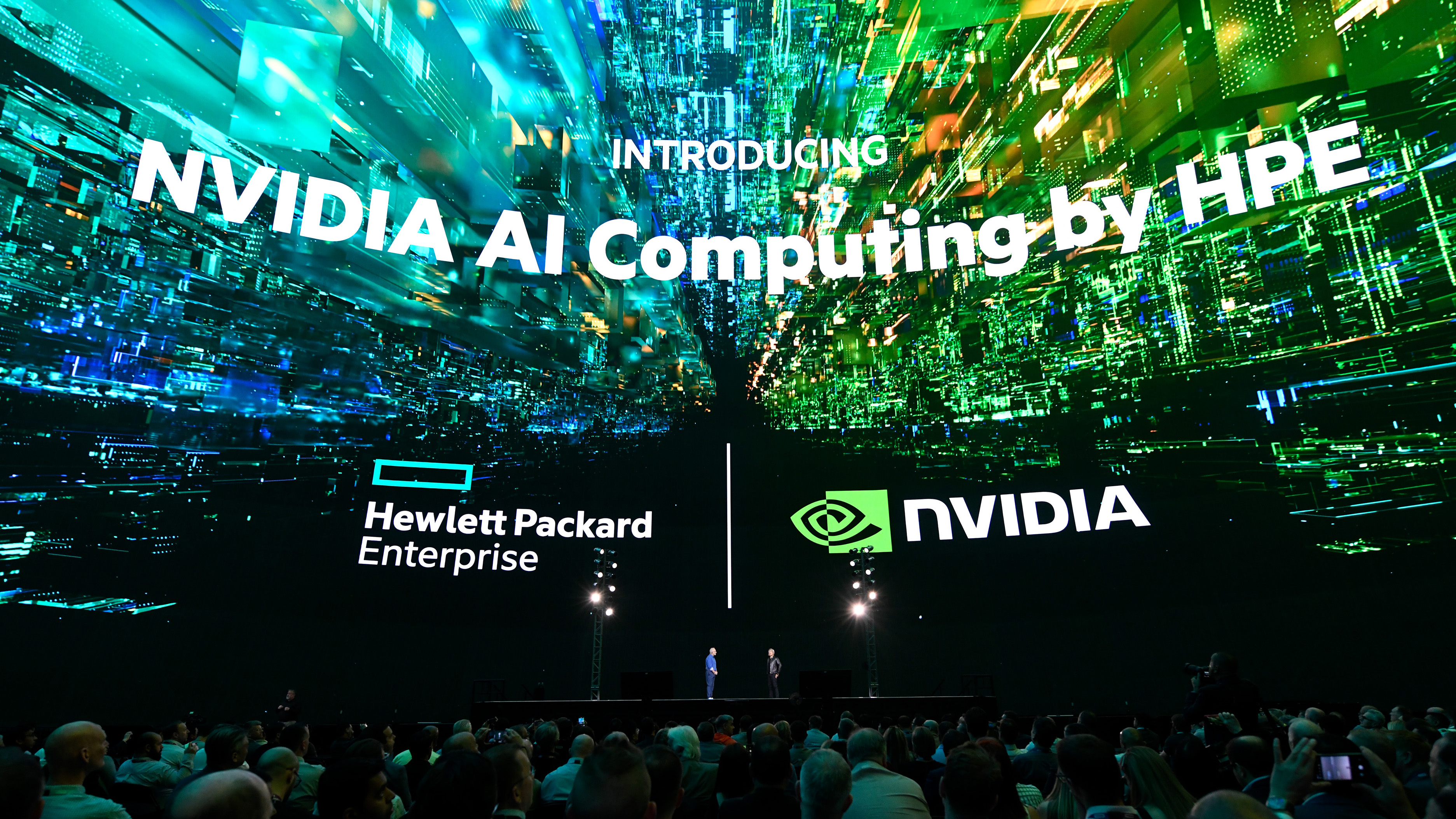 HPE’s drive for enterprise AI dominance continues with new Nvidia partnership
HPE’s drive for enterprise AI dominance continues with new Nvidia partnershipNews Nvidia AI computing by HPE brings a slew of new AI products to market
By Jane McCallion Published